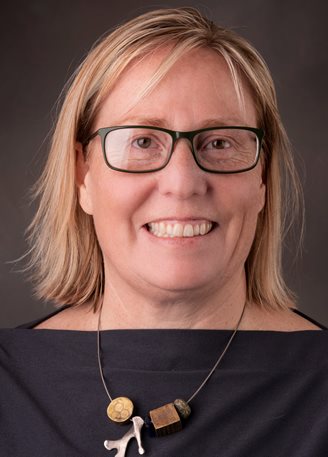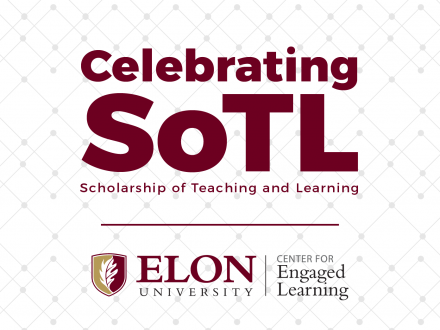Professor of exercise science and CEL Scholar Caroline Ketcham is investigating the barriers and challenges neurodivergent and disabled students face when participating in high impact practices.
Each spring, the Center for Engaged Learning (CEL), the Center for the Advancement of Teaching and Learning (CATL), and the Center for Research on Global Engagement (CRGE) join together to showcase research projects focused on the Scholarship of Teaching and Learning (SoTL). Follow along this week as we share Elon scholars’ research on innovative teaching practices through a series of Today at Elon articles.
A study abroad journey in a wheelchair. A successful collaborative project for a student with autism. An accessible ePortfolio created by a student with a visual impairment.
Many of the most prized educational practices and experiences are going to present real challenges to neurodiverse and physically disabled students. Center for Engaged Learning Scholar Caroline Ketcham is researching what these barriers and challenges are, and how we can better facilitate the participation of all students in high-impact practices.
 Higher education researchers have identified 11 high-impact practices — experiences like study abroad and mentored undergraduate research that, when done well, produce powerful positive outcomes for college students. There has been extensive research on the educational benefits for students who participate in them, but very little research on how to support disabled populations in these experiences. Ketcham is working to understand and share the perspectives of this population, so we can identify different pathways to our high-impact practices and broaden the experiences our students can be involved in.
Higher education researchers have identified 11 high-impact practices — experiences like study abroad and mentored undergraduate research that, when done well, produce powerful positive outcomes for college students. There has been extensive research on the educational benefits for students who participate in them, but very little research on how to support disabled populations in these experiences. Ketcham is working to understand and share the perspectives of this population, so we can identify different pathways to our high-impact practices and broaden the experiences our students can be involved in.
If the challenges to a student’s participation in a high-impact practice are too great, the costs may outweigh the benefits. “We have pedestaled certain high impact practices, and I’m not sure they are appropriate for all students,” Ketcham says. “We need authentic conversations. … Finances are not the only barrier for many students. And we need to normalize that that’s okay.”
She is investigating many questions: How do we make our teaching practices more inclusive of all students? How do we ensure that neurodiverse and physically disabled students are brought to our campus, thrive in our classrooms, and share their valuable perspectives in our school? How do we make high-impact experiences work for these students? What other opportunities can we provide that would generate the same outcomes but be more feasible? You can check out her posts to the Center for Engaged Learning blog, and stay tuned as she continues to write about her project through next year.
 Ketcham is a professor of exercise science and chair of the Department of Exercise Science, and her disciplinary research focuses on movement neuroscience. Her SoTL project on high-impact practices for disabled students was a perfect fit to complement her research. She appreciates how her experiences first as a CEL Research Seminar participant, then as a CEL Seminar Leader, and now as a CEL Scholar are giving her an opportunity to participate in multidisciplinary and international research. Ketcham explains that this type of research helps us to generalize findings across contexts. We may know what works here in our classrooms, but these SoTL projects allow us to think about “how we can impact the field of higher education. We need to have a variety of multidisciplinary viewpoints and evidence from different campus contexts for that.”
Ketcham is a professor of exercise science and chair of the Department of Exercise Science, and her disciplinary research focuses on movement neuroscience. Her SoTL project on high-impact practices for disabled students was a perfect fit to complement her research. She appreciates how her experiences first as a CEL Research Seminar participant, then as a CEL Seminar Leader, and now as a CEL Scholar are giving her an opportunity to participate in multidisciplinary and international research. Ketcham explains that this type of research helps us to generalize findings across contexts. We may know what works here in our classrooms, but these SoTL projects allow us to think about “how we can impact the field of higher education. We need to have a variety of multidisciplinary viewpoints and evidence from different campus contexts for that.”
During a two-year appointment, CEL Scholars develop expertise in a specific aspect of engaged learning and create resources on that topic to be shared through CEL’s website and in other scholarly venues. The CEL Scholar position is an opportunity for an Elon faculty member to develop and deepen a professional development trajectory that includes scholarly activity on a high-impact practice or other engaged learning topics. Learn more about the CEL Scholars program.


